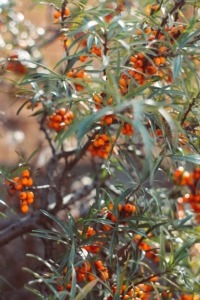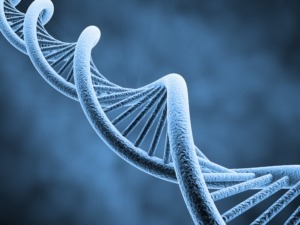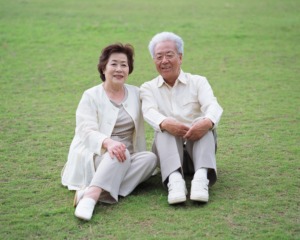Various parts of sea buckthorn are characterized by a unique composition of bioactive compounds: phenolic compounds, vitamins (especially vitamin C), unsaturated fatty acids, and phytosterols such as beta-sitosterol. Sea buckthorn berries, together with the juices, jams, and oils, have a range of beneficial antioxidant, anti-inflammatory, and anticancer effects. It has anti-proliferation properties and can induce apoptosis and stimulate the immune system, and sea buckthorn oil counteracts many side effects of chemotherapy by restoring kidney and liver function, increasing appetite, and keeping patients in good health. The anticancer activity of sea buckthorn has been confirmed by lots of in vitro and animal in vivo studies.
Anticancer activity of sea buckthorn
A number of phytopharmaceuticals, particularly such phenolic compounds as proanthocyanidins, curcumin, and resveratrol, have been found to offer significant benefits in cancer chemoprevention and radiotherapy. It is found that higher dietary intakes of phenolic compounds, especially flavonoids and procyanidins are associated with a lower risk of cancer. Sea buckthorn possesses a wide range of biological and pharmacological activities, including anticancer properties. The antitumor activity of sea buckthorn can be attributed to antioxidant compounds, particularly phenolic compounds such as flavonoids, including kaempferol, quercetin, and isorhamnetin; they protect cells from oxidative damage that can lead to genetic mutation and to cancer.
in vitro studies
Various in vitro studies have showed that sea buckthorn has anticancer activity. Scientists investigated changes in the expression of apoptosis-related genes in the human breast carcinoma cell line Bcap-37 induced by flavonoids from sea buckthorn seeds. Their bioinformatics analysis found that the expression of 32 analyzed genes, and caspase 3, associated with the apoptosis of Bcap-37 cells, was influenced by flavonoid treatment.
It was found that isorhamnetin ( a flavonoid isolated from sea buckthorn) has cytotoxic effects against human hepatocellular carcinoma cells, with an IC50 of about 75 μg/ml after 72-h treatment. It was also found isorhamnetin to have anti-proliferation effects on lung cancer cells in vitro when applied at concentrations ranging from 10 to 320 μg/ml, and in vivo in C57BL/6 mice when administrated orally (50 mg/kg/d) for 7 days. The mechanism of isorhamnetin action may involve the apoptosis of cells induced by the down-regulation of oncogenes and up-regulation of apoptotic genes. Other observations showed that isorhamnetin suppresses the proliferation of cells from the human colorectal cancer cell lines, induces cell cycle arrest at the G2/M phase, and suppresses cell proliferation by inhibiting the PI3K-Akt-mTOR pathway. In addition, isorhamnetin reduced the phosphorylation levels of Akt (Ser473), phosph-p70S6 kinase, and phosph-4E-BP1 protein, and enhanced the expression of cyclin B1 protein at concentrations of 20 and 40 μM.
In a study on MDA-MB-231 human breast cancer cells, sea buckthorn procyanidins isolated from the seeds showed inhibitory effects on fatty acid synthase (FAS): a key enzyme for de novo long-chain fatty acid biosynthesis, high levels of which are found in cancer cells. This inhibition was dose-dependent at concentrations ranging from 0 to 0.14 μg/ml. A concentration of 0.087 μg/ml inhibited 50% of FAS activity. Moreover, cell growth was suppressed by treatment with sea buckthorn procyanidins at concentrations between 10 and 60 μg/ml. In addition, the tested procyanidins were found to induce cell apoptosis in a dose-dependent manner. These procyanidins can induce MDA-MB-231 cell apoptosis by inhibiting intracellular FAS activity.
 After the effect comparison of 10 different extracts of fruits and berries, including sea buckthorn berries, on the proliferation of HT29 semi-colon cancer cells and MCF-7 breast cancer cells. Sea buckthorn showed the highest inhibition effect for the proliferation of HT29 and MCF-7 cells at its two highest administered concentrations (0.25 and 0.5%). It was suggested that the inhibition of cancer cell proliferation was correlated with concentrations of carotenoids and vitamin C. And, sea buckthorn berry extract possessed slightly antiproliferative effects against cervical and a semi-colon cancer cells grown in vitro.
After the effect comparison of 10 different extracts of fruits and berries, including sea buckthorn berries, on the proliferation of HT29 semi-colon cancer cells and MCF-7 breast cancer cells. Sea buckthorn showed the highest inhibition effect for the proliferation of HT29 and MCF-7 cells at its two highest administered concentrations (0.25 and 0.5%). It was suggested that the inhibition of cancer cell proliferation was correlated with concentrations of carotenoids and vitamin C. And, sea buckthorn berry extract possessed slightly antiproliferative effects against cervical and a semi-colon cancer cells grown in vitro.
Scientists found the antiproliferative activity of the juices of 13 types of berries, including sea buckthorn, at concentrations of 10–50 μg/ml against five cancer cell lines in vitro: stomach adenocarcinoma, mammary gland adenocarcinoma, prostatic adenocarcinoma, colorectal adenocarcinoma, and mammary gland adenocarcinoma. However, no correlation was found between the anti-proliferative properties of the berry juices and their antioxidant capacity, and the inhibition of cancer cell proliferation by the juices did not involve caspase-dependent apoptosis. Despite this, suppression of tumor necrosis factor induced activation of nuclear factor kappa-light-chain-enhancer of activated B cells was observed.
Elsewhere, scientists studied the antiproliferative and differentiation-enhancing activity of various plant extracts (10–100 μg/ml), including water-ethanol sea buckthorn leaf extract: it was found to have a total polyphenol content of approximately 46 mg GA equivalent/g dried extract, total flavonoid content of approximately 23 mg quercetin equivalent/g dried extract. The authors found that the extracts, including sea buckthorn extract, reduced the growth and viability of acute myeloid leukemia cells; in addition, at non-cytotoxic doses, they also potentiated cell differentiation induced by a low concentration of 1α,25-dihydroxyvitamin D3, in a manner dependent on cell type. Moreover, the tested extracts strongly inhibited microsomal lipid peroxidation and protected normal erythrocytes against hypo-osmotic shock.
Sea buckthorn leaf extract, containing about 70 mg/g total phenolic compounds and about 460 μg/g catechin, may inhibit the rapid proliferation of rat C6 glioma cells when administered at 0.62, 6.2, and 62 μg/ml, probably by inducing the early events of apoptosis. The authors also found that the reduction of C6 glioma cell proliferation and viability following administration of the plant extract was accompanied by a decrease in the production of reactive oxygen species, which are critical for the proliferation of tumor cells. Moreover, sea buckthorn not only upregulated the expression of the pro-apoptotic protein Bcl-2-associated X, but also promoted its localization in the nucleus.
Several studies show that sea buckthorn oil possesses anti-tumor properties. This oil can be incorporated in capsules, gelatin, and oral liquids. Moreover, toxicity studies report no adverse effects in subjects administered with sea buckthorn oil indicate that sea buckthorn oil plays an important role in cancer therapy, including chemotherapy and radiotherapy, and that sea buckthorn oil supplementation may help counteract many side effects or treatment, restore kidney and liver function, increase appetite, and generally keep patients in good health.
Sea buckthorn seeds, berries and pulp contain various other bioactive compounds, including unsaturated fatty acids and phytosterols. It is known that unsaturated fatty acids have a positive influence on human health by stimulating the immune system. In addition, phytosterols have anticancer properties.
Sea buckthorn has been found to have anticancer properties in both in vitro and in vivo studies on animal models. A study of the chemopreventive action of sea buckthorn fruits found them inhibiting dimethylobenzenoantracen-induced skin papillomagenesis in mice. The inhibition of carcinogenesis may be attributed to the concomitant induction of phase II enzymes, i.e., glutathione S-transferase, glutathione peroxidase, catalase, superoxide dismutase, and glutathione reductase in mouse liver. Moreover, the anticancer action of sea buckthorn fruits may be based on its enhancement of the DNA-binding activity of interferon regulatory factor-1, a known antioncogenic transcription factor causing growth suppression and apoptosis.
Not only the sea buckthorn extracts have anticancer properties: HRWP-A, a water-soluble homogenous polysaccharide with repeating units of (1 → 4)-β-D-galactopyranosyluronic residues, of which 85.2% are esterified with methyl groups, also demonstrates anticancer and immunostimulating activities in vivo. An antitumor activity assay demonstrated that HRWP-A could significantly inhibit Lewis lung carcinoma growth in tumor-bearing mice. In addition, this compound enhanced lymphocyte proliferation, augmented macrophage activities, and promoted natural killer cell activity in tumor-bearing mice.
Radioprotective ability of sea buckthorn
 Due to its high content of biologically-active compounds and antioxidants, sea buckthorn is included in cancer therapy for its radioprotective activity, it was found whole extract of fresh sea buckthorn berries have protective properties, particularly for radiation-induced micronuclei in mouse bone marrow. In addition, RH-3 inhibited the Fenton reaction and radiation-mediated production of hydroxyl radicals in vitro.
Due to its high content of biologically-active compounds and antioxidants, sea buckthorn is included in cancer therapy for its radioprotective activity, it was found whole extract of fresh sea buckthorn berries have protective properties, particularly for radiation-induced micronuclei in mouse bone marrow. In addition, RH-3 inhibited the Fenton reaction and radiation-mediated production of hydroxyl radicals in vitro.
It was found that RH-3 inhibited DNA strand breaks induced by radiation and tertiary butyl hydroperoxide in a dose-dependent manner, as revealed by Comet assay. It was also noted a strong compaction of chromatin occurring at concentrations of 100 and 120 pg/ml RH-3 and above, which made the nuclei resistant to radiation. Interestingly, a radioprotective dose of RH-3 (30 mg/kg b.w.) induced significant DNA fragmentation in thymocytes in mice in vivo. In addition, sea buckthorn treatment before irradiation was found to enhance radiation-induced apoptosis in vivo suggest also that pre-irradiation treatment of mice with 30 mg/kg sea buckthorn berry extract protects the functional integrity of mitochondria from radiation-induced oxidative stress. These experiments studied the levels of various biomarkers of oxidative stress, including superoxide anion, lipid peroxidation, and protein oxidation. Interestingly, RH-3 was found to have immunostimulatory properties, which may play an important role in its radioprotective efficacy.
Although many studies have proved the anticancer activity of sea buckthorn, its medicinal and prophylactic doses remain unknown, and no clinical trials have yet been performed: only in vitro or in vivo studies involving experimental animals. It is known that sea buckthorn may participate in the prevention and treatment of cancer; it also accelerates the return to health of patients receiving chemotherapy by significantly improving the performance of the immune system and relieves hematological damage.
The hypothetical mechanism by which sea buckthorn may exert its chemopreventive and therapeutic responses against cancer. The bioactive substances in various parts of sea buckthorn have a range of properties, including antioxidant, anti-inflammatory, and anti-proliferative activities; they also induce apoptosis and strengthen the immune system.

Leave A Comment